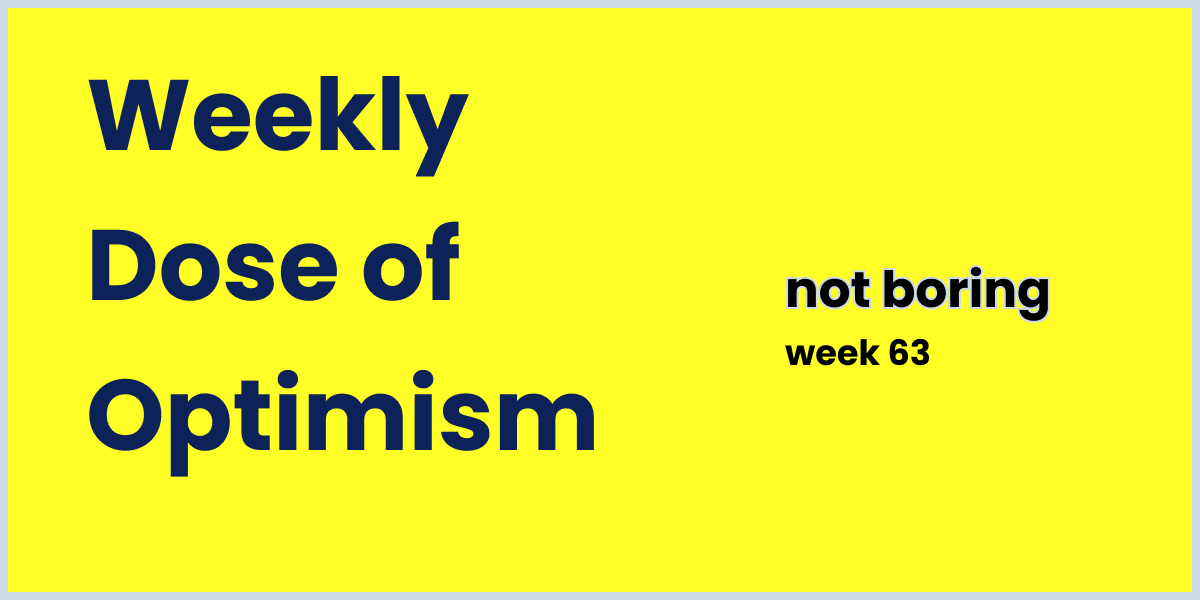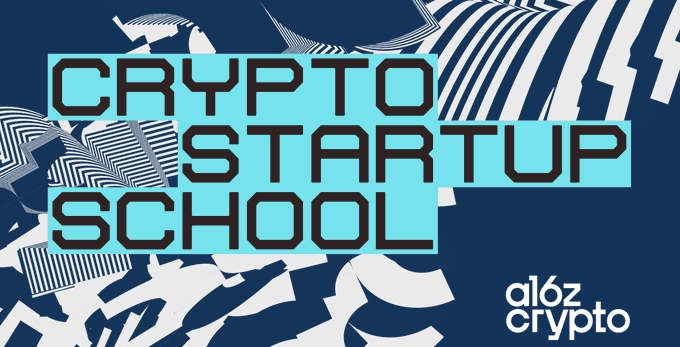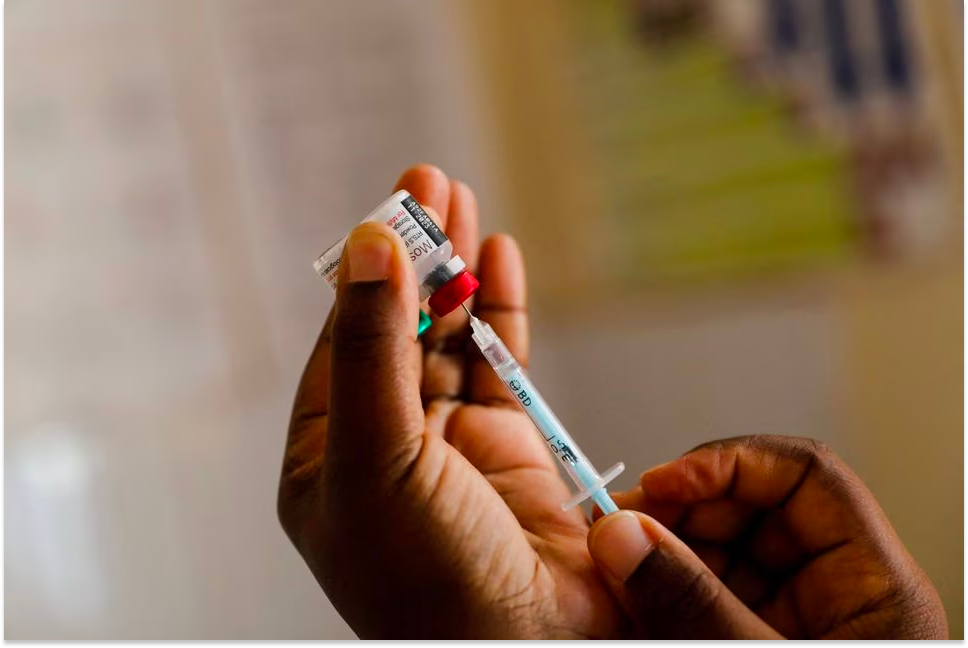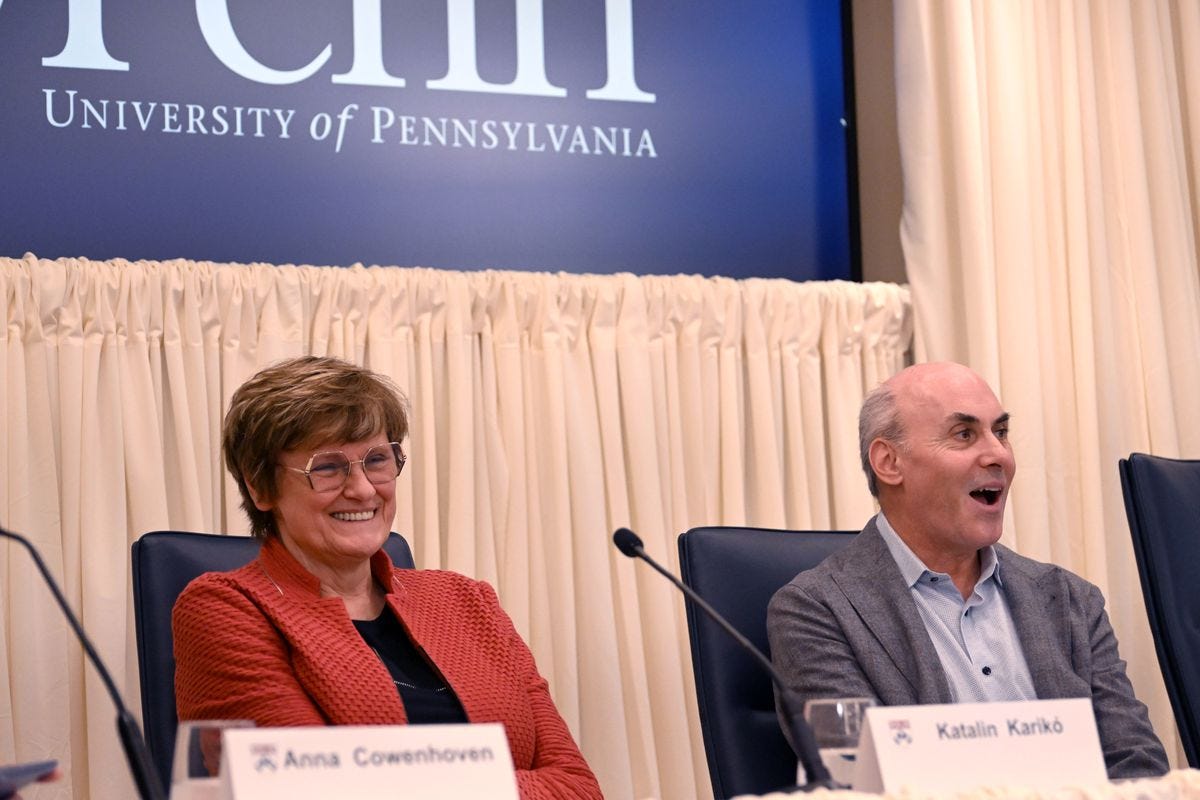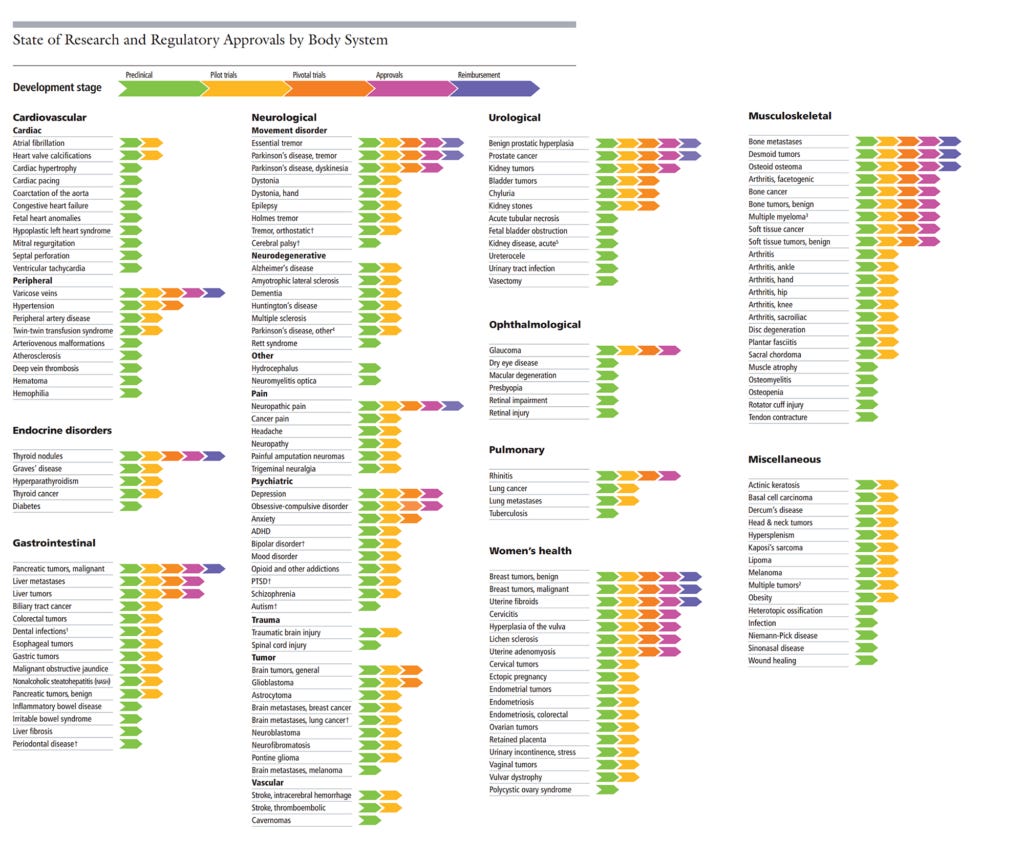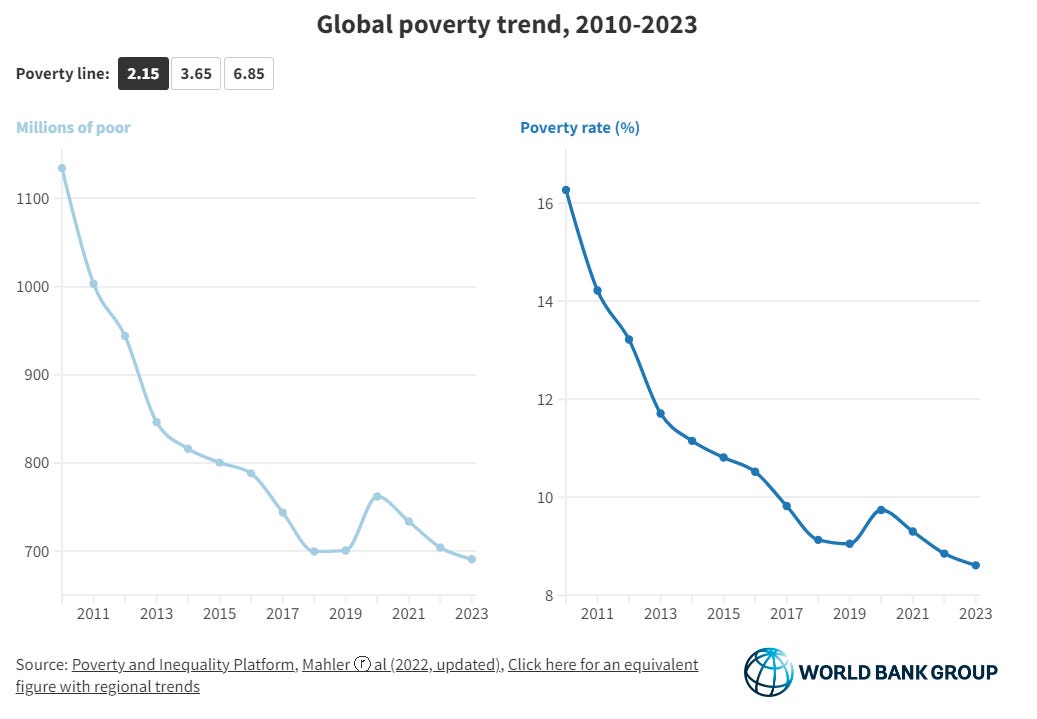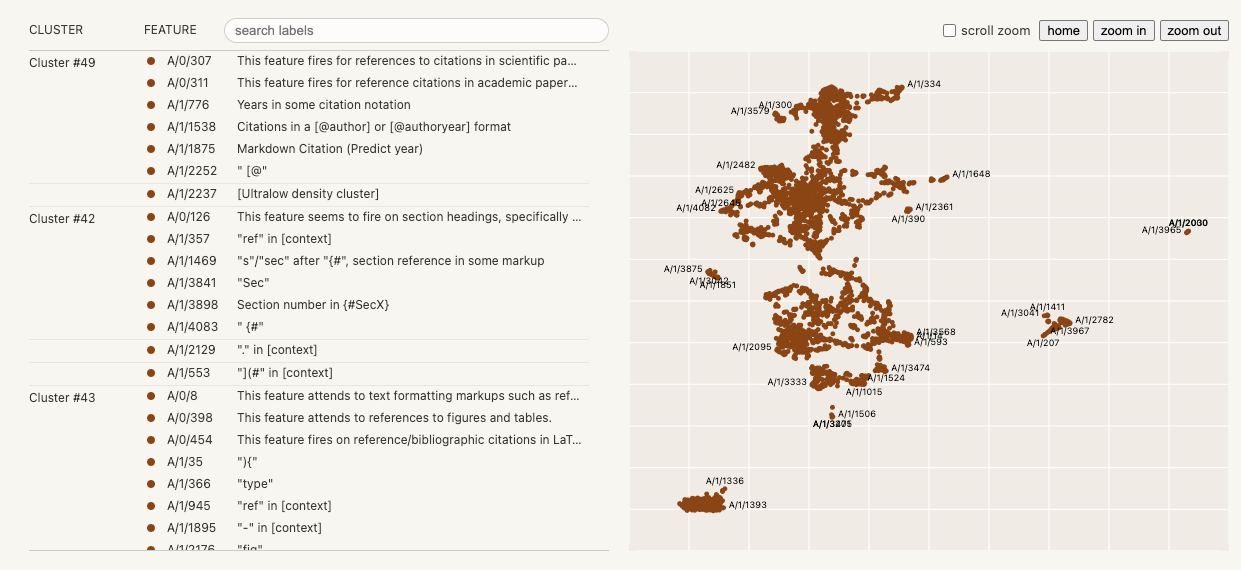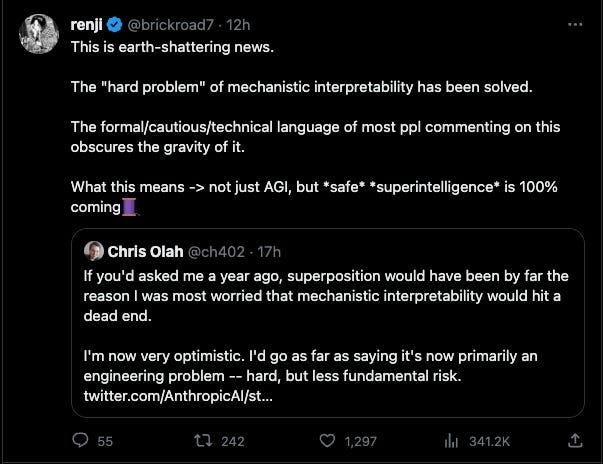Not Boring by Packy McCormick - Weekly Dose of Optimism #63
Weekly Dose of Optimism #63Malaria Vaccine, Nobel Prizes, Focused Ultrasound, Poverty Reduction, Safe Superintelligence, BoatsHappy Friday and welcome back to our 63rd Weekly Dose of Optimism. Fall is upon us in NYC. It’s Q4 (for those who celebrate.) The Phillies won their Wild Card Series and are moving onto the NLDS. The Eagles are 4-0. It’s Nobel Prize week. Life is good. Let’s get to it. Instead of an ad, I want to tell you about… a16z Crypto Startup School Packy here. a16z Crypto Startup School (CSS) is the premier web3 accelerator program for early-stage companies, where founders can gain the expertise, network, and capital they need to navigate this fast-paced industry. Over 12 weeks, CSS teams will receive expert guidance to help develop their product, level up go-to-market plans, and set their projects up for long-term success. Over the past couple of years, I’ve gotten to know the a16z crypto team well as an advisor, and I can’t recommend working with them highly enough. They’re smart, thoughtful, curious, technical, and all around good people. I’ve learned a ton from them. I also got to attend CSS Demo Day in LA last year and can vouch for the exceptional talent CSS attracts. Do it. The next CSS runs from March - June 2024 in London, and we’re looking for builders from around the globe who are intent on taking big, bold swings in crypto and web3. Applications are open to candidates worldwide through October 20th: (1) WHO recommends malaria vaccine that will be rolled out next year Gabrielle Tétrault-Farber and Leroy Leo for Reuters
We’re getting a second malaria vaccine, and this time we’re getting it at scale. Malaria kills 600,000 people per year, mostly children in Africa. It’s spread by mosquitoes, and once it gets into the body, it shape-shifts to hide from our immune systems. That makes it hard for our bodies to develop immunity, and has presented a huge challenge to the scientists who have been trying to develop a vaccine for over a century. Two years ago, the WHO recommended broad use of the world's first malaria vaccine called RTS,S. The first ever approved malaria vaccine was a huge deal, and if the Weekly Dose had been around, it would have been our headline story. This newly recommended vaccine, R21/Matrix-M, shows similar efficacy as RTS,S but is also able to produced at scale. The world's largest vaccine manufacturer - the Serum Institute of India - is already lined up to make more than 100 million doses a year and plans to scale up to 200 million doses a year, and with scale comes lower costs. The vaccine will cost about half as much as RTS,S, and SII projects that supply will match demand for the new vaccine in 2024. Suck it, mosquitoes. (2) 2023 Nobel Prize Winners Announced Nobel Week baby! If there’s one week that reminds us that there are some very smart, dedicated optimists out there pushing humanity forward, it’s Nobel Week. Here’s a quick roundup of the winners. All of the winners are wicked smart and impressive, but the story of the week is Katalin Karikó, the UPenn researcher who’s been working on mRNA for nearly 35 years. Karikó joined the University of Pennsylvania in 1989 on a tenure track to work on mRNA, but struggled to get funding. By 1995, UPenn demoted her. She bounced from lab to lab, before finally ending up in Drew Weissman’s lab. The two figured out a way to get the immune system to ignore mRNA in order to make it effective as a vaccine. They still couldn’t get funding or publications — the lifeblood of academic research — but Penn still filed patents on their work. When Karikó and Weissman spun out a company, RNARx, they couldn’t come to a licensing agreement with Penn. Instead, Penn sold the patents to a small company for $300,000. When Moderna’s backers called Karikó to license the patents, she didn’t have them. They licensed from the company that bought them, Cellscript, instead. Moderna and BioNTech would end up paying out hundreds of millions of dollars to Cellscript for Karikó and Weissman’s work; meanwhile, RNARx shut down in 2013. Karikó told a Nobel interviewer, “I was kicked out from Penn, was forced to retire.” It’s thanks to her dogged determination in the face of a chilly reception from the academic community that we had mRNA vaccines when we needed them during COVID. Her story begs the question: how many similarly brilliant ideas have been lost because others just gave up? How do we make sure the next Karikó doesn’t get lost in the shuffle? Last October, Elliot Hershberg and Dr. Jocelynn Pearl wrote a Not Boring piece, Gassing the Miracle Machine, on exactly that topic. It’s worth reading in light of Karikó’s Nobel. Here’s the full list of this year’s winners (economics is being announced Monday):
Humans rock. Especially Katalin Karikó. From The Focused Ultrasound Foundation This tweet from Steve Jurveston brought Focused Ultrasound (FUS) to our attention. Focused ultrasound utilizes ultrasonic energy to target tissue deep in the body without the need for surgical incisions. Here’s how Jurveston summed it up, “You have probably seen ultrasound images of babies, but if you arrange an array of ultrasound transducers to focus to a point, they can manipulate cells and membranes like a magnifying glass focusing sunlight to a burning hot point.” It's a form of non-invasive therapy, and while it’s still mostly in trial phases, its applications could range from tumor treatment to drug delivery. At the same time, the technology does have some potential setbacks: imprecise targeting and overheating cells unintentionally. To be clear, we’re still early here and tons of more research is currently underway, but the idea of using ultrasound to zap tumors is cool enough to include early. There were no major announcements related to FUS this week (Jurveston tweeted about it after apparently attending a conference on it) but it’s not hard to imagine that the folks behind this technology could one day join the ranks of the Nobel winners we highlighted above. (4) Poverty is back to pre-COVID levels globally, but not for low-income countries. From The World Bank
Good-ish news and bad news from the World Bank this week. Good-ish news first: Global poverty levels have recovered since COVID setbacks. We’ve now reverted back to pre-pandemic levels. Bad news: The poorest countries are still worse off than before the pandemic. Taken together, we’ve essentially lost 3 years of improving global poverty levels and during that time the most poor became poorer. That’s a pretty bleak story, but when you zoom out even just a few more years, the progress we’ve made on poverty is astounding. Since 2011, extreme poverty rates have plummeted. Nearly 500 million people worldwide have been lifted out of extreme poverty. Today about 9% of the world population lives on less than $2.15 per days; that % was nearly double at the start of the 2010s. A lot of work to be done. And certainly we’ll face pandemic-like setbacks in the future. But if we extend that curve another decade, our bet/hope is that another few hundred million folks will be lifted out of extreme poverty. (5) Towards Monosemanticity: Decomposing Language Models With Dictionary Learning From Anthropic Packy here. On Wednesday, I made a very funny joke about Google’s rumored investment in Anthropic at a $20-30 billion valuation: Yesterday, Anthropic responded by dropping a paper that demonstrates a big step towards understanding language models. As they tweeted, “The fact that most individual neurons are uninterpretable presents a serious roadblock to a mechanistic understanding of language models. We demonstrate a method for decomposing groups of neurons into interpretable features with the potential to move past that roadblock.” I’m not smart enough to understand the paper, but according to people who are, Anthropic solved the hard problem of mechanic interpretability, which might mean that we can make superintelligent AIs that won’t kill us. Lesson learned: I won’t even make pessimistic jokes anymore. Bigger lesson: there’s been so much hand-wringing about AI killing us all, and then humans just go out and turn mechanistic interpretability into a solvable engineering problem. That’s not to say “don’t worry, everything will be fine.” Anthropic was founded to do research and build products that “put safety at the frontier.” People have to do the work, but it keeps turning out that there are no insoluble problems as long as you’re not trying to break the laws of physics. Bonus: Boats, Boats, Boats They say the two best days in a boat owner's life are the day they buy a boat and the day they sell it. The same could probably be said of startup investing. Which makes this new wave of boat-tech startups particularly interesting trend. Arc: The electric boat company raised a $70M Series B to commercialize its water-sport vehicle. Beyond its low-noise, low-gas, and high performance characteristics, the EV boat it also better for the environment. Oh And it looks cool, too. Navier: And earlier this week, Jason Carman opened season two of his must-watch YouTube series S³ with a profile of Navier.  Navier’s “N30” hydrofoiling craft that is 10x more efficient than traditional gas powered boats, and has many of the same benefits as Arc. Watch the video — hydrofoilin’ e-boats are just fun to watch. Regent: The electric seaglider company just announced its $60M Series A lead by 8090 and Founders Fund. The seaglider operates a few meters off the ground and couples the speed of airflight with the operational ease of boating. The plan is to use these craft to facilitate transportation between coastal cities. And it just might be a step towards answering our favorite question: Where is My Flying Car? As Delian tweeted, “Our investment here is us continuing to double down on the thesis that flying boats are the predecessor to flying cars.” 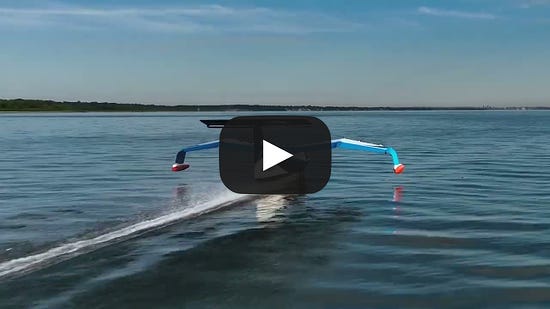 The future of boating is bright. But I think that’s enough water action for me today. Before I get seasick, let’s call it a newsletter. That’s all for this week. If you have some time this weekend, check out a16z Crypto Startup School. We’ll be back in your inbox on Tuesday. Thanks for reading, Dan + Packy |
Older messages
Anduril: Acquiring Prime
Tuesday, October 3, 2023
Analyzing Anduril's M&A Strategy and the Future of Defense
Weekly Dose of Optimism #62
Friday, September 29, 2023
Big Tech Roundup, Animal AI, Nuclear Microsoft, Helion, Frank the Tank
Array Labs: 3D Mapping Earth from Space
Tuesday, September 26, 2023
Satellite Clusters and the Quest for the Holy Grail of EO
Weekly Dose of Optimism #61
Friday, September 22, 2023
Zuck Clusters, AlphaMissense, Lasker Awards, Permitting Action, Nuclear Re-Opening
The Gang Captures Washington
Tuesday, September 19, 2023
Fighting Back Against Regulatory Capture for a Better Future
You Might Also Like
🔮 $320B investments by Meta, Amazon, & Google!
Friday, February 14, 2025
🧠 AI is exploding already!
✍🏼 Why founders are using Playbookz
Friday, February 14, 2025
Busy founders are using Playbookz build ultra profitable personal brands
Is AI going to help or hurt your SEO?
Friday, February 14, 2025
Everyone is talking about how AI is changing SEO, but what you should be asking is how you can change your SEO game with AI. Join me and my team on Tuesday, February 18, for a live webinar where we
Our marketing playbook revealed
Friday, February 14, 2025
Today's Guide to the Marketing Jungle from Social Media Examiner... Presented by social-media-marketing-world-logo It's National Cribbage Day, Reader... Don't get skunked! In today's
Connect one-on-one with programmatic marketing leaders
Friday, February 14, 2025
Enhanced networking at Digiday events
Outsmart Your SaaS Competitors with These SEO Strategies 🚀
Friday, February 14, 2025
SEO Tip #76
Temu and Shein's Dominance Is Over [Roundup]
Friday, February 14, 2025
Hey Reader, Is the removal of the de minimis threshold a win for e-commerce sellers? With Chinese marketplaces like Shein and Temu taking advantage of this threshold, does the removal mean consumers
"Agencies are dying."
Friday, February 14, 2025
What this means for your agency and how to navigate the shift ͏ ͏ ͏ ͏ ͏ ͏ ͏ ͏ ͏ ͏ ͏ ͏ ͏ ͏ ͏ ͏ ͏ ͏ ͏ ͏ ͏ ͏ ͏ ͏ ͏ ͏ ͏ ͏ ͏ ͏ ͏ ͏ ͏ ͏ ͏ ͏ ͏ ͏ ͏ ͏ ͏ ͏ ͏ ͏ ͏ ͏
Is GEO replacing SEO?
Friday, February 14, 2025
Generative Engine Optimization (GEO) is here, and Search Engine Optimization (SEO) is under threat. But what is GEO? What does it involve? And what is in store for businesses that rely on SEO to drive
🌁#87: Why DeepResearch Should Be Your New Hire
Friday, February 14, 2025
– this new agent from OpenAI is mind blowing and – I can't believe I say that – worth $200/month
